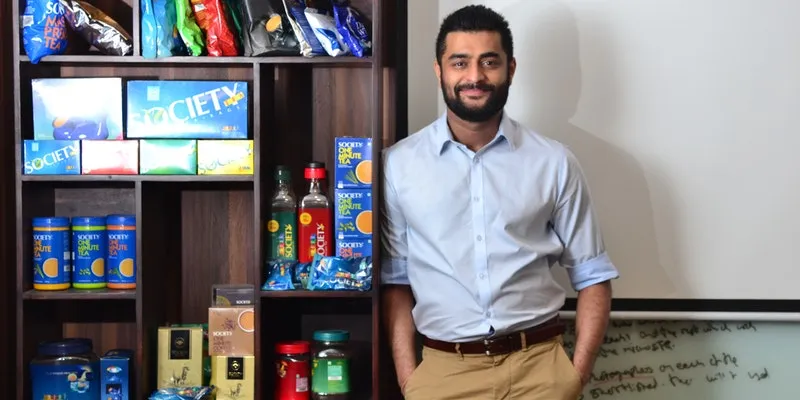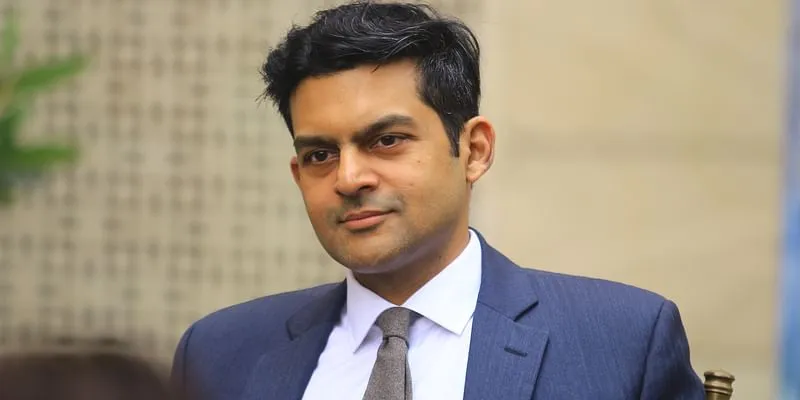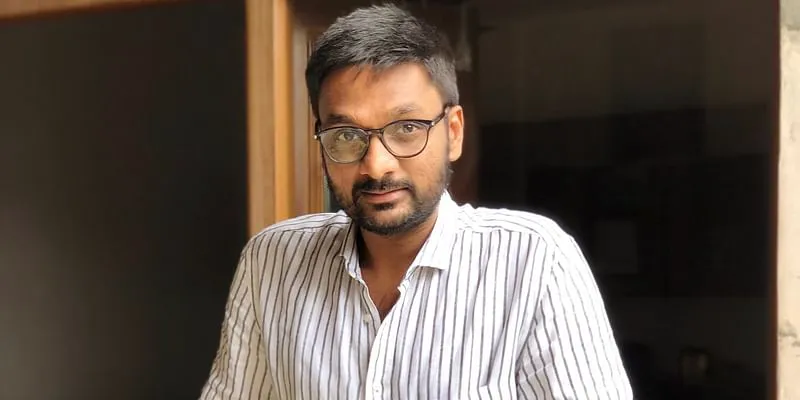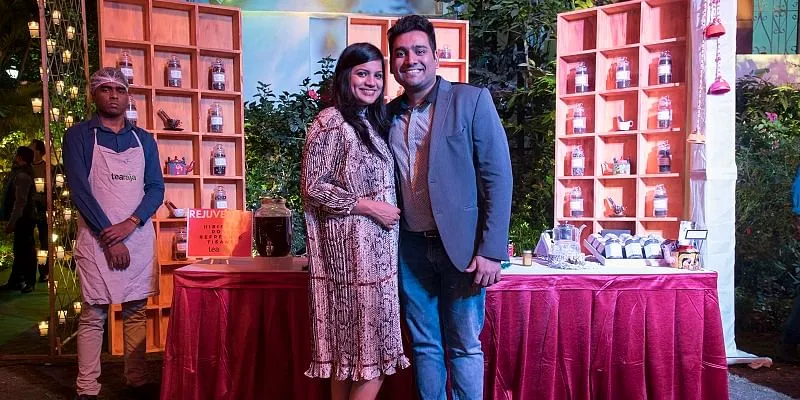International Tea Day: 6 Indian tea brands that are disrupting a multimillion-dollar industry
India, a predominantly tea-drinking nation with its swathes of tea-growing valleys, is eyeing the top spot for quality tea production in the world. And, homegrown brands have been helping preserve the rich heritage of tea drinking in the country.
Tea has become India’s national identity of sorts. From high quality first, flush harvests steeped only for a set number of minutes to homemade tea quickly brewed for friends and family — the country’s beloved ‘chai’ has seen all sorts of empires, processing methods, catastrophes, regulations, and other beverages come and go. The beverage has managed to remain a constant even as the rest of the country was metamorphosing.
A multimillion-dollar industry, India's tea manufacturing industry has not just helped employ hundreds of thousands of workers but also put the country on the map for quality tea exports.
According to an IBEF report, India ranks second in tea production. In fact, after water, tea is the most consumed beverage across the world. On the occasion of International Tea Day, we look at six enterprises furthering the legacy of tea drinking in India.
Society Tea

Karan Shah, Director, Society Tea
Masjid Bunder’s ‘chai galli’ in Mumbai was one of the biggest marketplaces for tea-leaf wholesalers in Maharashtra. The narrow lanes have given India some of its most recognised tea brands, including .
One of India’s largest premium brands, Society Tea started with Hiralal Shah, who used to trade on Masjid Bunder’s famous tea lanes back in the mid-1920s.
Hiralal’s grandson Karan Shah, who now holds the reins of the company as its Managing Director, says his grandfather’s main aim of setting up the company was to cater to the discerning consumer.
“My grandfather used to source tea from various parts of India to sell it in bulk on wholesale. Besides being a large supplier for local customers, he also traded with Middle Eastern countries on a very large scale,” says Karan, Managing Director.
In 1933, Hiralal started Hasmukhrai & Co. to retail tea in Mumbai. His first shop was located in Kalbadevi, Mumbai.
By the late 1980s, Hasmukhrai & Co. had become one of the market leaders in the tea industry in Mumbai. Sensing that the customer prefers the convenience of packaged tea, the company launched tea in packet form in 1991, which was available across retailers in Mumbai, and later, in Maharashtra by the name of Society Tea.
Society Tea now records an annual turnover of over Rs 490 crore, (according to MCA) with a wide presence across India, including Goa, Andhra Pradesh, Madhya Pradesh, Karnataka, Tamil Nadu, Punjab, Rajasthan, and Delhi. It commands an impressive 40 percent of the tea market share in Maharashtra.
The company sources tea leaves from across India, including Assam, Darjeeling, and Munnar. It has two manufacturing units in Sanjan and Umbergaon in Gujarat.
MK Jokai

Parimal Shah, President, MK Jokai Agri Plantations
In our tea-loving nation, the beverage also has a historic and nostalgic aura that a Kolkata-based tea company has brandished with care for decades. With a huge market potential that many players are disrupting, MK Jokai’s legacy stands tall with its premium quality teas that were exported to Russia, Poland, and other countries as early as the 1950s.
In the '50s, MK Shah was finding his feet in the tea market. With trade booming, he started a small tea broking firm in a 200 sqft shop, trading orthodox (full-leaf) teas taken directly from local manufacturers to markets abroad.
“My grandfather had a very modest background. He earlier worked in a tea broking firm in Kolkata and slowly started his own. With utmost dedication and perseverance, fighting against all odds in times when communication was a big problem, he exported tea into the Russian market,” Parimal Shah (33), the third-generation tea entrepreneur and President of MK Jokai, said.
Kolkata-based MK Jokai Agri Plantations Pvt Ltd is steeped in tea history. At a time when barter trading was prominent and India exported goods in exchange for resources, MK Shah explored the B2B segment of Russia (then USSR) and Poland.
The brand became an instant hit, and in the 1990s, the company set up a subsidiary in St. Petersburg, Russia.
“As orthodox tea farmers (whole leaf teas), the tea we manufacture is sipped black, without milk and straight. It is a premium variety, and it distinguishes us from the mass-market players who manufacture and deal in CTC (crush, tear, and curl) teas, which is the most popular tea Indians prefer,” Parimal says.
Today, MK Jokai Agri Plantations Pvt Ltd owns about 12,000 acres of land, producing 6,500 metric tonnes of tea annually, developing around 147 variants of teas for different geographical regions.
Luxmi Group

Rudra Chaterjee, Managing Director, Luxmi Group
During the Satyagraha Movement in 1917, when India was under British Raj, not many people distinguished themselves in business due to the outcrying policies by the British and the political unrest.
In 1917, the tea industry was predominantly British-owned. The tea estates were in India but were not bringing revenue to India.
Seeing such a miserable condition of the country, where one had to plead for their own rights, PC Chatterjee, who was part of the Satyagraha Movement, decided to expand and diversify Luxmi Tea (he founded as a small business in 1912) as a part of the Indian movement for self-reliance.
In an interaction with SMBStory, Rudra Chatterjee, Managing Director of Luxmi Group, narrates the company’s journey and says,
“My grandfather was a freedom fighter. He founded this company as a tool for Satyagraha. However, the first tea estate was not in British India, but it was founded in the land which belonged to the Maharaja of Tripura, and he started promoting the tea from this estate as the Swadeshi Tea.”
Headquartered in Kolkata, Luxmi Group is one of the largest tea producers in India and produces around 30 million kilograms of tea annually. And, more than 20,000 workers are working with Luxmi Group.
Vahdam Teas

Bala Sarda, Founder and CEO, Vahdam Teas
In recent years, India’s Darjeeling tea has made a name for itself in the global market, with UK brand Twinings Tea and Starbucks subsidiary Teavana boasting of the Indian flavour to their customers.
Although Indian teas are in wide demand, Bala Sarda felt that India as a brand is not efficiently placed in foreign markets.
In an interaction with SMBStory, the Founder and CEO of , says,
“There are foreign brands that are sourcing tea from India, and the consumers abroad love the taste. However, I didn’t find the ‘Made in India’ tag as the selling point there. The perception is if an Indian brand is selling the same product, it wouldn’t be of good quality.”
In 2015, at the age of 23, Bala founded Vahdam Teas — a digitally native, vertically integrated global wellness brand — that ships one of India’s finest teas to the world. The company is headquartered in New Delhi.
Vahdam is now available in 1,000 brick and mortar shops in the US. It is one of the first few Indian brands to list in premium and legacy retail chains in the US, including Nordstrom, Neiman Marcus, Bloomingdales, Nordstrom, Bergdorf Goodman, and Saks Fifth Avenue.
Bala says Vahdam has close to 1.5 million US customers. In five years, Vahdam Teas has raised over Rs 110 crore in venture funding in four rounds.
The Tea Shelf

Atulit Chokhani, Founder, The Tea Shelf
After completing a bachelor’s in chemical engineering from RV College, Bengaluru, Atulit Chokhani started his career as an intern at Deloitte.
“You know when you pursue engineering, you are placed in an IT company. And, it wasn’t late enough when I realised that IT is not my cup of tea. Hence, after completing my internship, I made my way back to my hometown in Assam to spend some time to figure out what I wanted to do,” Atulit told SMBStory.
Born into a family that has been in the tea business for many generations, the next step seemed like a no-brainer. However, a light bulb went off in his mind – “What can you possibly add to a 150-year-old business?”
It all changed after a trip to South African vineyards, and Atulit — a sixth-generation tea planter — couldn’t think of a better opportunity than taking his legacy forward in a different way.
Thus, The Tea Shelf was born in January 2015.
The company's basic goal is to make premium loose-leaf Indian teas available to all tea drinkers worldwide to create an awareness of the taste and quality of tea, uplift tea from a regular beverage to a coveted drink, and witness a shift from cooking tea to brewing it.
The brand has valuable experience derived from its family legacy in all areas concerning tea, with five tea estates in Upper Assam, a tea engineering unit to manufacture tea machinery, a state-of-the-art blending and packaging unit in Kolkata, and bulk tea wholesale and retail division for the domestic and export market.
Tearaja

Manish and Poonam Jain, Founders of Tearaja | Source: Tearaja
“Adversity is the mother of all inventions,” says Manish Jain, Founder of Kolkata-based tea business . Manish (32) — also a member of the Indian Billiards and Snooker teams — had taken some time off from the game in 2014. There were no tournaments for the next five months, and he decided to have a look at the family tea business.
This revealed two truths about his father’s company — it was bankrupt with a huge debt and interest payments, and there was no growth in sales for almost a decade.
Manish decided to take up the responsibility to revive his family business. And how! Today, Tearaja manufactures tea and sells more than 200 varieties, both online and offline, doubling its customer base year-on-year.
In 2016, Manish incorporated Tearaja, bootstrapping it with a loan of Rs 10 lakh from his in-laws. He remembers being the first tea seller on Amazon from Kolkata, and says, “Starting with 10 orders a month, we now clock 4,000 online orders a month.”
Manish’s wife, Poonam Jain (32) joined the founding team and serves as the design thinker, innovation, and new ideas creator.
Tearaja started with single estate teas at first and has now ventured into flavoured and ayurvedic varieties. It has a team of 20 employees responsible for tea tasting, quality check, and packaging, and it outsources its tech and marketing teams.
Edited by Aparajita Saxena and Suman Singh







